JournalismPakistan.com | Published September 17, 2012
Join our WhatsApp channel
QUETTA: The telephone call to local journalists generally comes in the late evening. The voice on the other end is harsh. He has a statement he wants printed, and he prefaces it with a terse order: "Report our messages without making any changes or we will kill you."
The messages they deliver warn of upcoming violence or assassinations, sometimes naming an intended victim, or claim responsibility for atrocities already committed.
The calls come from Sunni militants notorious for violence against minority Shiites or members of secessionist groups that routinely blow up police stations and attack government facilities in the southwestern Pakistani province of Balochistan.
But the late-night calls put the journalists in a bind. If they don't print the messages, they could be killed. If they do print them, they could face three years in prison under Pakistan's anti-terrorism laws. It's no surprise which risk they'd rather run. At least 20 journalists have been killed in Balochistan the past six years, their bullet-ridden bodies sometimes found stuffed into sacks.
"If you are a journalist here in Balochistan you have a choice: Either a bullet in the head or a jail sentence," said Ashiq Butt, a stocky bureau chief with the News Network International (NNI), a Pakistani news agency that feeds its reports to newspapers.
But authorities are putting pressure from their side as well, trying to stem spiraling violence in the province.
Last month, the Balochistan provincial government for the first time charged 21 news organizations, their owners and several journalists under the anti-terrorist law, which provides for three years in jail if convicted of carrying messages, reports or information supplied by outlawed militant groups. The charge sheet filed by the government accused the news organizations of "spreading panic."
Pakistan is one of the most dangerous places in the world to work as a journalist, according to the US-based Committee to Protect Journalists. In the last six years 41 journalists have died violently in Pakistan, although 12 of those deaths are still under investigation to determine whether their deaths were linked to their jobs as journalists, according to the CPJ site.
Many of the multiple militant groups and armed factions in Pakistan — such as Lashkar-e-Janghvi, behind many slayings of Shiites — operate with impunity, with police too weak to take much direct action against them. So they are only emboldened to threaten journalists into being their mouthpieces.
"If I want to live in this city I have to write what they say," Butt said.
The statements can often be cruel and explicit, detailing those who have been killed, he said. Sunni militants' messages are laced with vitriolic attacks against the minority Shiite Muslims they revile as heretics.
Just last week, he was called by a member of the violent Balochistan Liberation Army, a self-declared secessionist group fighting for an independent state for ethnic Balochis against what they see as domination from ethnic Punjabis. The group has already claimed responsibility for the deaths of three journalists. The caller had a message and added, use it verbatim or die.
Butt did exactly that, publishing the statement, "The Punjabis have captured our lands and we will kill the Frontier Corps and Police . . . We will continue our struggle until Balochistan is liberated from Pakistan."
Aryan Khan, another journalist in the Balochistan capital Quetta, said Lashkar-e-Janghvi militants even dictate the language newspapers and broadcasters should use in their normal news reports whenever they report on the death of a Shiite, whether in an attack or from natural causes.
Rather than the respectful, euphemistic terms usually used by Urdu-language press for a person's death, "they say we should use the same word we use if an animal dies," he said.
In recent years Pakistan's Balochistan province has been shattered by relentless bloodletting by the separatists and by Sunni militant killings and suicide bombings against Shiites. Human rights activists and international aid workers operating in Balochistan have also been attacked. The international Red Cross suspended its operations in May after one of its workers was killed in Quetta.
"For us Balochistan has become a source of great concern," said Bob Dietz, Asia Program Coordinator for the Committee to Protect Journalists. "The situation in Balochistan looks set to continue for a long time — the issues are deep seated and don't lend themselves to easy solutions. For media support groups, the region has emerged as a new front line."
Escalating violence is making vast parts of Balochistan inaccessible, said Dietz.
That, he contended, seems to suit the government.
"The government seems to be quite happy that there is little or no independent monitoring of the situation," he said. He also criticized the Balochistan provincial government for laying charges against journalists and news organizations covering both sides in the conflicts ravaging the region.
In an interview in Quetta, provincial police chief Omar Ibne Khitab justified the charges, saying the anti-terror law was clear. He also said his force does not have the equipment to trace the threatening telephone calls to journalists and locate the culprits.
The Human Rights Commission of Pakistan issued a report last month criticizing the government for inaction as well as national media outlets for neglecting coverage of events in Balochistan. The report said local journalists feel threatened from all sides and neglected by the government.
"Journalists in the field felt threatened from the security forces, militants and insurgents," said the report released August 30. "If they said one thing they were traitors to one side and if they did not they were traitors to the other side.”
From within the HRCP's heavily guarded office, Shamsul Mulk said rights workers risked their lives investigating the killings of journalists as well as the circumstances surrounding the disappearance of scores of people, many linked to the separatist movement. Many rights workers have left the organization out of fear for their lives.
"I wouldn't be here if there wasn't a guard outside the door," he said. "People are afraid. They are not even attending our meetings anymore."- AP
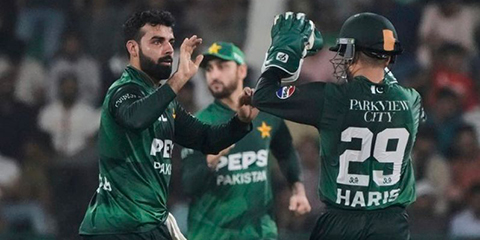
June 11, 2025: Pakistan celebrated a narrow win over Bangladesh, but beneath the jubilation lies a deeper crisis—from sidelined veterans to a collapsing domestic structure—signaling an urgent need for cricket reform.
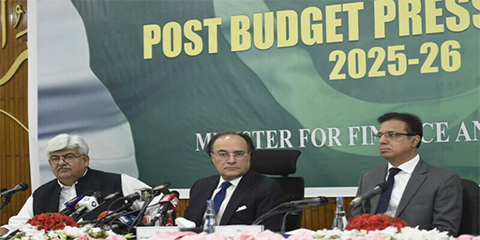
June 11, 2025: Journalists walked out of the post-budget press conference in Islamabad to protest the absence of a technical briefing and the government's dismissive behavior, calling it unacceptable and intolerable.
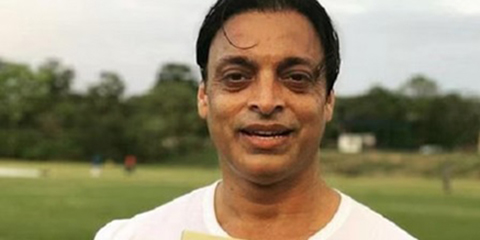
May 31, 2025: Dr. Nauman Niaz has issued a defamation notice to Shoaib Akhtar over derogatory remarks made during a recent broadcast, reigniting a longstanding media feud between the two prominent figures in Pakistan.

May 30, 2025: The Human Rights Commission of Pakistan has demanded the full repeal of PECA, citing its vague language, coercive powers, and threats to free speech and digital rights in Pakistan.
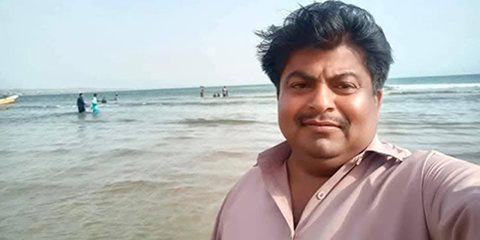
May 30, 2025: The Pakistan Federal Union of Journalists (PFUJ) has condemned the murder of journalist Syed Mohammed Shah in Jacobabad, calling for urgent justice and improved safety for media professionals in Sindh.

May 26, 2025: In Rawalpindi, police allegedly side with Jang Group to block 66 reinstated employees from resuming work despite court orders, drawing sharp criticism from unions and press freedom advocates.

May 25, 2025: PFUJ condemns the Jang Group's decision to dismiss over 80 employees in Rawalpindi, calling it an 'economic massacre.' The union warns of nationwide protests if workers are not reinstated.
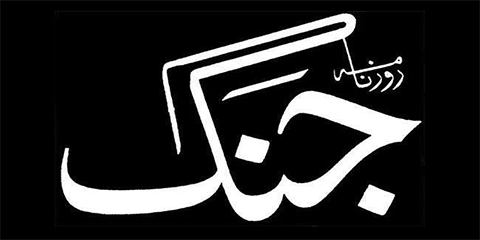
May 25, 2025: Daily Jang Rawalpindi has terminated over 80 employees, including female staff, despite multiple court rulings in their favor—raising concerns over labor rights violations and misuse of authority in Pakistani media.
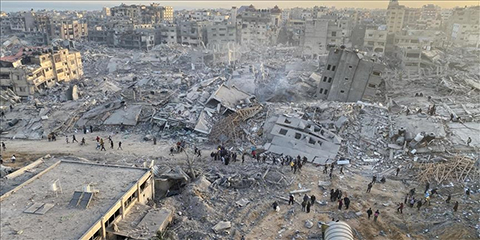
May 19, 2025 PJS reports 219 Palestinian journalists killed in Israeli attacks since October 7, with 30 women among the victims. Over 430 were injured and 685 family members were killed. Read more on the systematic targeting of media in Gaza.

May 15, 2025 Discover the legacy of Samiullah Khan, Pakistan’s legendary "Flying Horse," whose breathtaking speed and artistry redefined hockey. From Olympic glory to World Cup triumphs, his story is one of myth, movement, and magic.
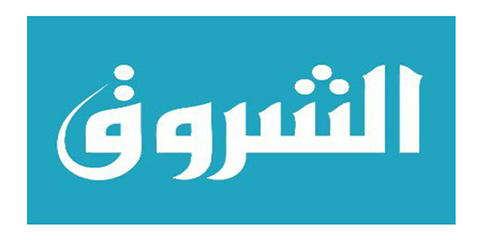
May 04, 2025 Algerian authorities suspend Echorouk News TV for 10 days after it used a racist slur against African migrants. ANIRA demands an apology, calling it a violation of human dignity.

May 04, 2025 NCHR and MMfD launch a journalism fellowship to train reporters on digital rights & gender inclusion in Pakistan. Supported by UNESCO, this initiative aims to bridge the gender digital divide. Apply by May 15, 2025!
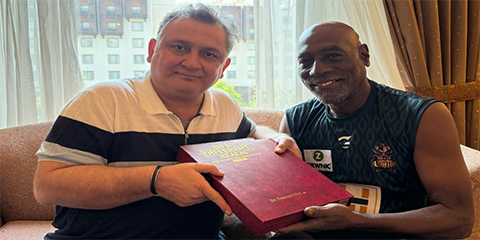
April 23, 2025 Discover Dr. Nauman Niaz’s In A Different Realm: Story of Quadruple & Triple Centuries 1876–2025, a profound exploration of cricket's most monumental innings, blending historical analysis with poetic narrative.